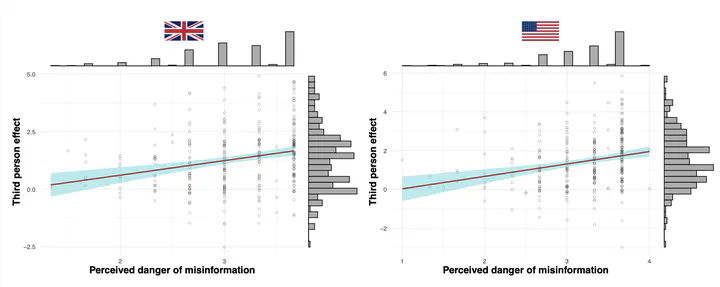People believe misinformation is a threat because they assume others are gullible
Feb 17, 2024· ·
0 min read
·
0 min read
Sacha Altay
Alberto Acerbi

Abstract
Alarmist narratives about the flow of misinformation and its negative consequences have gained traction in recent years. If these fears are to some extent warranted, the scientific literature suggests that many of them are exaggerated. Why are overly alarmist narratives about misinformation so popular? In two pre-registered experiments (N = 600, UK), replicated in the US (N = 601), we investigated the psychological factors associated with perceived danger of misinformation and how it contributes to the popularity of alarmist narratives on misinformation. We find that the strongest, and most reliable, predictor of perceived danger of misinformation is the third-person effect (i.e., the perception that others are more vulnerable to misinformation than the self) and, in particular, the belief that ‘distant’ others (as opposed to family and friends) are vulnerable to misinformation. The belief that societal problems have simple solutions and clear causes was consistently, but weakly, associated with perceived danger of online misinformation. Other factors, like negative attitudes towards new technologies and higher sensitivity to threats, were inconsistently, and weakly, associated with perceived danger of online misinformation. Finally, we found that participants who report being more worried about misinformation are more willing to like and share alarmist narratives on misinformation. Our findings suggest that alarmist narratives on misinformation tap into our tendency to view other people as gullible.
Type
Publication
Altay, S., Acerbi, A. (2024), People believe misinformation is a threat because they assume others are gullible, New Media & Society, 26, 11